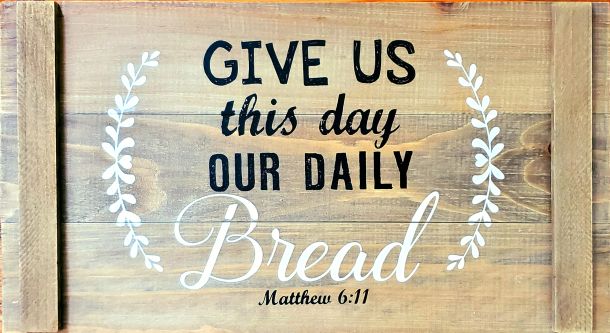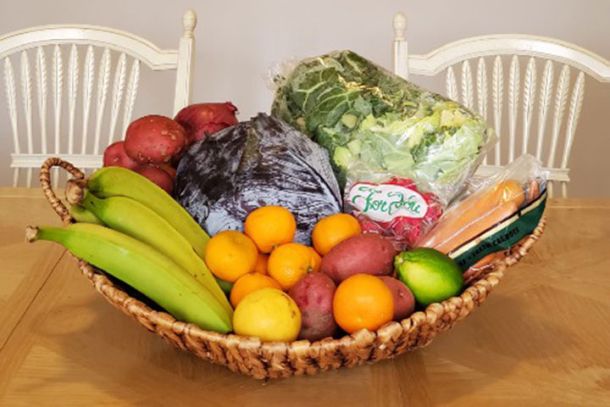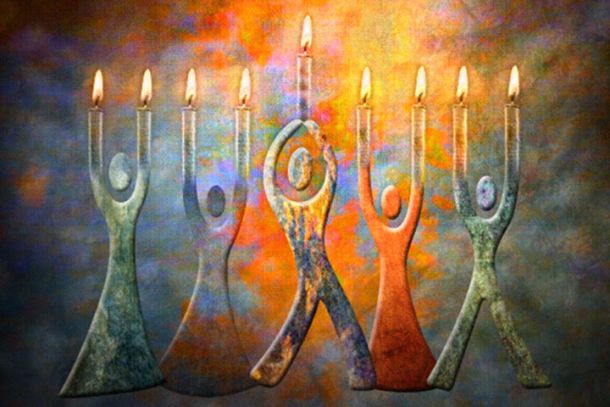Passover 2020: Why is this night different from all other nights?
The whole world is sequestered in their homes, waiting for a world-wide plague to pass over.
God wants us to recognize the appointments He Himself determined as He set the sun and the moon and the stars in place in Genesis 1:14. He said He placed them there as signs and to mark appointed times. (Passover is always on a full moon). This year, Wednesday evening, April 8, at twilight, is what God calls His Passover. Unleavened Bread starts just after sundown and lasts for 7 days. Firstfruits is Sunday, also being celebrated as resurrection day. All of these Feasts have been celebrated by God’s people since the time of Moses.
Originally Passover was the day that God delivered the Israelites from the grip of slavery in Egypt. After a series of 9 plagues, the 10th and final plague was to be the death of the firstborn of every household that did not have the blood of a lamb placed on the doorposts of their house. Everyone was given a choice and each house was to have their own lamb, or it could shared with a neighbor. The blood on the doorposts was the sign that would cause the destroyer to “pass over” the house.
So too, we have been slaves to sin, held captive by the enemy. But our Messiah Jesus (Yeshua in Hebrew) shed His blood as the great Passover Lamb. When we see and believe Him to be our deliverer from the slavery of sin, He gives us a new heart to follow God’s commands. When we submit to Him as Lord, we in effect put the blood of the Lamb on the doorposts of our hearts. We are then “passed over” by the destroyer and promised eternal life and freedom.
In fact, Jesus is the Word made flesh, the physical manifestation of God’s Torah/Law. He walked it out completely and perfectly. Just like the Passover lamb, he was chosen on the first day of the first month to be brought into the house for inspection to see if there was any blemish or defect. Jesus came into Jerusalem on what we call Palm Sunday, which was the first day of the first month. He was inspected for four days and found not guilty, without fault or blemish — the perfect Passover Lamb sacrifice. He was crucified at the exact moment that the Passover Lambs were being sacrificed in Jerusalem.
In addition, the Passover is the beginning of the Feast of Unleavened Bread. God commanded His people to keep this Feast by cleaning out any leaven/yeast in their homes, and to eat unleavened bread (matza) for 7 days. Leaven/yeast is symbolic of sin in our lives. In fact, yeast is a living organism that causes the process of decay. Yeast is in the air all around us and will enter freely into a mixture of flour and water within minutes. The chemical process is fascinating in that the living yeast organisms begin feeding on the flour and water mixture, causing a puffing up of the flour mixture. Interestingly enough, leavened bread can be traced back to its origination in ancient Egypt over 3000 years ago. God commanded His people to flee from Egypt with their unleavened dough, not giving it time to collect yeast before leaving Egypt.
In like manner, Jesus is the unleavened Bread of Life. He was without sin, and His body did not see decay. He was buried on the first day of the Feast of Unleavened Bread. As believers in this Messiah who delivered us from sin and death, we are to clean out the leaven/sin in our lives. We are to feast on the unleavened Bread of Life, the very Word of God that is alive and written on our hearts. Clean the leaven out of our homes, spring clean looking at everything in our homes and lives through the lens of Scripture. Do we have things in our home that are not glorifying to God, movies, music, books, a gluttony of things, food that will defile our temples? When Jesus came into Jerusalem on Palm Sunday, recognized as the Messiah, He immediately went to the Temple and overturned the tables of the moneychangers. He was cleaning out the leaven in His Father’s house, right there in preparation for the Feast of Unleavened Bread! If we want to be like Yeshua, we must do what He did!
Finally, the most magnificent day in the history of man, the day of Resurrection! There’s a beautiful hidden surprise here that nobody has been celebrating in its fullness. He rose from the dead on the Feast of Firstfruits. On this day, the High Priest would wave an offering of the firstfruit of the Barley harvest (1st of harvest of the year) and dedicate the entire harvest to come to the Lord. Jesus presented Himself before God as the Firstfruits of the harvest. He became the High Priest and presented His wave offering when the bodies of the many saints came out of the tombs and walked (waved) among the streets of Jerusalem on His resurrection day…thus blessing and consecrating the entire future harvest of saints to God the Father! “If the dough offered as firstfruits is holy, so is the whole lump…(Romans 11:16a) The Hebrew root word for firstfruits is the same as the word for firstborn. Jesus is the firstborn over all creation. There has been a fight for the firstborn since then, beginning with Adam, carrying through to Isaac and Ishmael, Jacob and Esau, Moses, the firstborn in Egypt, and even in Jesus’ day with King Herod. But God…In our Redeemer we have the firstfruits of the Spirit that transforms us into His glorious image. (Hebrews 8:22–23), and we will be passed over from the second death. Jesus was the firstborn of those who have fallen asleep, and we are promised that we will join Him.
“But now Christ is risen from the dead, and has become the firstfruits of those who have fallen asleep. For since by man came death, by Man also came the resurrection of the dead. For as in Adam all die, even so in Christ all shall be made alive. But each one in his own order: Christ the firstfruits, afterward those who are Christ’s at His coming.” 1 Cor 15:20–23
So how do we walk this out practically as commanded by God in Exodus and in Leviticus 23? Acknowledge your Passover Lamb for what He’s done for you by reading and remembering the original Passover as well as the Passover of Messiah. Clean out the leaven/sin from your heart and from your home. Teach it to your children! The entire Passover season is about remembering and teaching it to our children. Tell them about the plagues, talk about how God defeated the false Gods of Egypt and how He will defeat the sin and false gods in our own lives. Celebrate the Feast of Firstfruits by bringing your best, don’t come empty handed to the Resurrection celebration. Through all of the Feasts of the Lord, God says not to come empty handed. Bring your firstfruits of your resources, dedicate your firstborn children and all your children to God. Renew your covenant with Yeshua, who sacrificed His own sinless body to take the death penalty for you, and who ratified this covenant with His own blood.
“Therefore, I urge you, brothers and sisters, in view of God’s mercy, to offer your bodies as a living sacrifice, holy and pleasing to God — this is your true and proper worship. Do not conform to the pattern of this world, but be transformed by the renewing of your mind. Then you will be able to test and approve what God’s will is — his good, pleasing and perfect will.” Romans 12:1–2
This day shall be for you a memorial day, and you shall keep it as a feast to the Lord; throughout your generations, as a statute forever, you shall keep it as a feast. -Exodus 12:14
Cleanse out the old leaven that you may be a new lump, as you really are unleavened. For Christ, our Passover lamb, has been sacrificed. Let us therefore celebrate the festival, not with the old leaven, the leaven of malice and evil, but with the unleavened bread of sincerity and truth. -1 Corinthians 5:7–8
If you are able to have a family night together for Passover, it can be very simple. It’s nice to have some bitter herbs like celery, parsley, or lettuce to dip in salt water (tears). Also unleavened bread (matza), and grape juice. We already have the Lamb…But any good food to add for a feast is appropriate.
There are 4 cups drank at a traditional Passover meal which could be an entire study in themselves, but they are as follows. (Exodus 6:6–7)
- Cup of consecration/sanctification or setting apart — “I will bring you out”
- Cup of Judgement/plagues — “I will deliver you.” This is the cup Jesus spoke of in the Garden of Gethsemane when He asked the Father to take the cup from him, but not His will but the Father’s will. He drank the cup of judgement for us!
- Cup of Redemption — “I will redeem you” This is the cup He shared with His disciples, and us when we partake. In Luke 22:17–20 He says He will not drink of the fruit of the vine again until He does so in the Kingdom with us.
- Cup of Praise — “I will take you for my people.”
Traditionally the Hallel is sung, Psalm 113–118. The end of Psalm 118 is “Lord, save us! Lord, grant us success! Blessed is he who comes in the name of the Lord.” The Hebrew word is Hoshiana, or Hosanna which means “Oh save now” or “save please”, and is what was being sung as Jesus entered Jerusalem on Palm Sunday. In Luke 13:34–35 Jesus stated “Oh Jerusalem…I tell you, you will not see me again until you say, ‘Blessed is he who comes in the name of the Lord.’” Jesus will drink the fourth cup when the Kingdom comes, at the marriage supper of the Lamb. We are commanded to pray for the Peace of Jerusalem. (Psalm 122:6 — which is a song of ascent for pilgrims going up to Jerusalem for a Feast). Through the thousands of years of exile experienced by God’s people, a tradition at the end of a Passover Seder is to proclaim “Next Year in Jerusalem.” Well, they are back in Jerusalem, and we as believers need to pray to the Prince of Peace to reveal Himself to Jerusalem, because that is when He will return — when they say “Blessed is He who comes in the name of the Lord.” Therefore, a passion for the return of our Lord necessarily includes a passion for the Jewish people. Paul wrote, “For if their [the Jews] rejection of Messiah means the reconciliation of the world, what will their acceptance mean but life from the dead?” (Romans 11:15)
Praying for the peace of Jerusalem means the coming of Sar Shalom, the Prince of Peace, to drink the final cup of Praise with all who believe! HalleluYah!!!
“Behold the Lamb who takes away the sin of the world.” John 1:29
Here are some significant Scriptures to read through.
Leviticus 23:1–14 Feasts commanded
Exodus 12–14 (Exodus 1–11 is the setup for the deliverance)
Luke 19:28–48 into Jerusalem and cleanses temple
Luke 22:1–38 last supper
Matthew 26:36–68 prayer in garden, arrest
Matthew 27:32–61 crucifixion & burial
Mathew 28 — He is risen
1 Cor 15:20–23 Messiah as firstfruits
Colossians 1:15–21 Messiah as firstborn over creation
Revelation 1:4–5 Messiah as firstborn of the dead
Psalm 118 Hallel — Praise
Revelation 19:1–10 Wedding supper of the Lamb
Baruch Haba B’Shem Adonai — BLESSED IS HE WHO COMES IN THE NAME OF THE LORD!
NEXT YEAR IN JERUSALEM!
Tonja Smith, Founder/Director
Ruth’s Gleanings
4/3/2015, revised 4/9/2020
Latest Stories
147 Chapel Street, Spartanburg, SC 29303
864.586.2840



